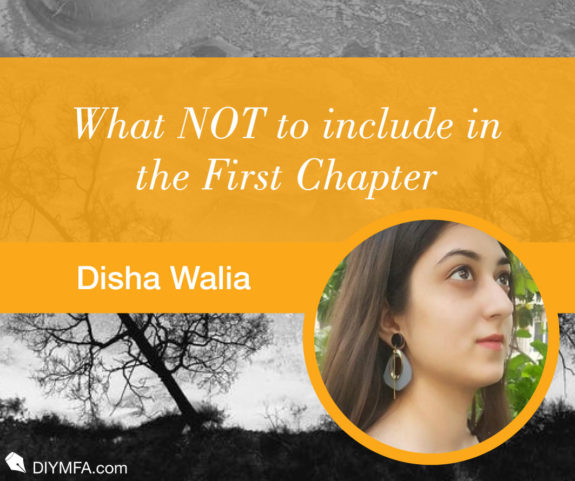Previously on Worldly Wise, we talked about what can make great hooks for your speculative fiction novel. Now, if you’ve got some idea of how you’re going to grab your potential reader’s attention, shall we work on how to retain it? There are a lot of things you can do to produce an ideal first chapter, but here are 4 things you must avoid to make it even more perfect. But keep in mind: DO NOT DELETE ANYTHING. Save it for later. You can always scatter what you edit out in the rest of your novel.
1. Worldbuilding
Speculative fiction is incomplete without an awe-inspiring world that you need to introduce to your readers. You have all these cool ideas that you’re sure are going to hold your readers’ attention, but hold your horses! The first thing you should introduce to your readers is the protagonist that they’re going to care about. As is the case in some genres, like mystery, if you are holding off on introducing the protagonist, that’s okay. But no reader is going to care about an awesome world until they know who or what they are going to follow into that world.
Give your readers someone to root for and then gradually introduce them to your incredible world. It’s going to have a much greater impact and will stick with them longer.
2. Overwritten Prose
Say it with me, “readers are smart!” You don’t need to write everything to where it sounds like you’re spoon-feeding the novel to your readers. They’re smart, they’ll figure things out.
The pressure to produce the perfect first chapter is high, but needlessly over-elaborating a point is going to have the opposite effect. This also includes, especially for Sci-Fi, over-explaining the science part to your readers. Unnecessary repetition, flowery figures of speeches, confusing sentence structures are all no go. Also, don’t throw jargon at your readers. No one likes to be told, “I don’t think you’re smart enough to figure it out yourself, so here is all that you need to know in 200 pages”.
Focus on pacing the plot. And while you’re at it, remember to avoid overwritten prose for the rest of your novel.
3. Too Much Physical Description
Even if your world is amazingly different, or your characters look a certain way in your head, please do not give too much physical description.
As far as characters go, give valid descriptions and let your readers’ imagination take it from there. No one is going to remember the certain shade of brown your protagonist’s eyes look like either way. Not to mention, if a million readers read your description, chances are they are still going to imagine different things.
With the world, once again, instead of condensing the information in one place, try to spread it throughout the novel. And what can be left to your readers’ imagination, let them take it over.
4. Info-Dumps
It might sound like the previous two “what not to do” covered this one, but info-dumping is a much greater crime. We have all heard of the classic rule called “show, don’t tell”. This is where everything is “telling” and the readers get no “showing”. I am talking about backstories, motives, inner conflicts, and everything in between here.
Even a sentence or two of info-dumps can be off-putting. And yes, none of us writers will ever be able to get away with it even if we try to hide it between the dialogues. After all, how many of us actually go around talking to our friends about the kind of world we live in unless it is a conversation about the world?
Info-dumping destroys the illusion of fictional reality. It is like the characters are trying to point out something to the readers. That becomes a barrier between a reader’s imagination and the story. Information must always be conveyed naturally.
The first chapter is hard, and the first draft is harder. But if we break them down and slowly work on one element at a time, holding your published novel in your hands will no longer be just a dream.
What is something you’ve sworn to never do in your first chapter? Let me know in the comments. Until next time!

Disha Walia is a lifelong storyteller and an enthusiastic writer and editor in love with the idea of exploring the creative world of words. While making her space in the world of non-fiction and fiction alike, Disha loves to spend even her free time daydreaming about what next to write. Connect with her on www.quillinary.com. You can also follow her on Instagram and Twitter.







